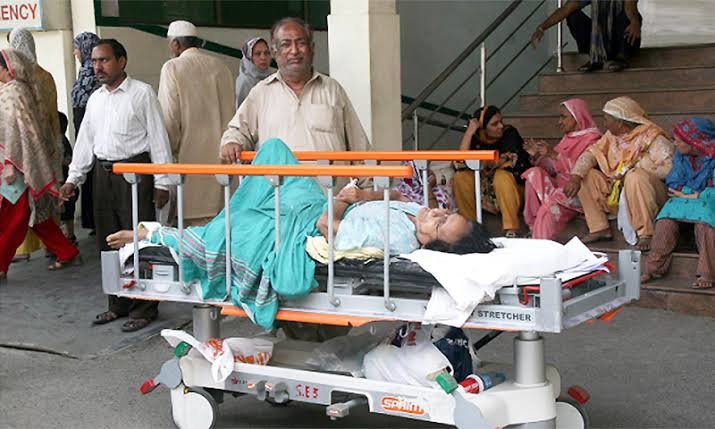Analysis !
Welfare states develop functional public health systems which provide free & competent health facilities to the people. It’s the obligation of a state to take care of the health of a nation. Provision of health services is a fundamental right of a citizen.
According to the Law Insider, a public health system is a network of public, private, and voluntary entities that contribute to the delivery of essential public health services within a jurisdiction. The public health system recognizes the roles and interactions of all these entities in improving the health and well-being of the community or state. The World Health Organization (WHO) defines public health as
the art and science of preventing disease, prolonging life and promoting health through the organized efforts of a society.
Why is it critical for a welfare state?
A welfare state is a form of government that provides social protection and services to its citizens, such as education, health care, pensions, and unemployment benefits. A public health system is critical for a welfare state because it helps to protect and improve the health of people and their communities by preventing and controlling diseases, promoting healthy lifestyles, and ensuring access to quality health care. It helps to advance social justice and equity by reducing health disparities and addressing the social determinants of health.
A functional public health system enhances national security and economic development by preventing and responding to health emergencies, outbreaks, and pandemics. It save lives and reduce costs by investing in prevention, early detection, and treatment of diseases.
How to develop a functional health system in Pakistan?
Pakistan’s health system is complex and faces many challenges, such as urban-rural disparities, inadequate funding, insufficient workforce, low coverage of essential services, poor quality of care, and high burden of communicable and non-communicable diseases. There is a dire need to develop a functional health system in Pakistan & following possible strategies can be adopted.
Legislative Strategies:
There is a need to enact and implement laws and policies that support public health goals, such as universal health coverage, tobacco control, immunization, maternal and child health, environmental health, etc. Furthermore, administrative & structural reforms are critical to strengthen the governance and accountability mechanisms for the health sector at federal, provincial, and local levels. Then, it’s significant to harmonize the legal frameworks and standards for public and private health providers and ensure their compliance.
Administrative Strategies:
There is a need to increase the allocation and efficiency of public spending on health and reduce the reliance on out-of-pocket payments by expanding social health insurance schemes. It’s also significant to strengthen the coordination and collaboration among different stakeholders in the health system, such as government agencies, private sector, civil society, donors, etc. Most importantly, enhancing
the capacity and performance of the National Institute of Health (NIH) as the National Public Health Institute (NPHI) for leading public health functions in Pakistan is important. Then, also improve the collection, analysis, dissemination, and use of health information and data for evidence-based decision making.
Executional Strategies:
It’s important to scale up the delivery of essential public health services at primary, secondary, and tertiary levels of care, with a focus on quality, equity, accessibility, and affordability & invest in human resources for health development by increasing the number, skills, motivation, retention, and distribution of health workers.
It’s also significant to strengthen laboratory systems and networks for disease surveillance, diagnosis, monitoring, and research.
Details at
republicpolicy.com
















